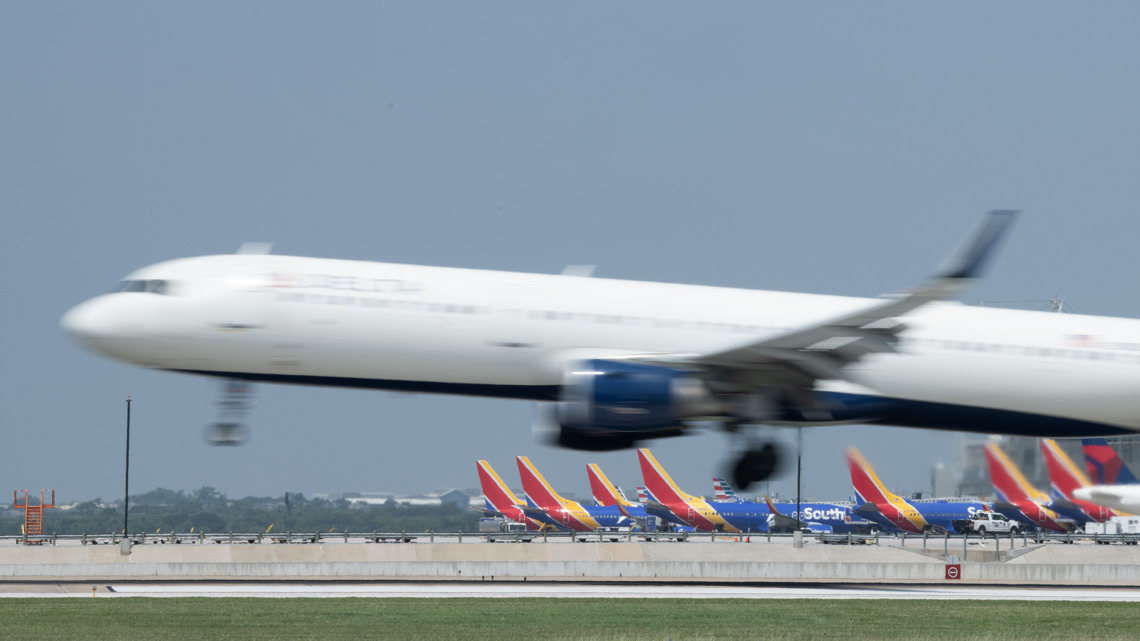An Austin travel expert says buying direct flights and travel insurance could help smooth any unexpected flight delays and cancellations.
AUSTIN, Texas — Friday marks a full month since the U.S. Government shutdown, and Austin-Bergstrom International Airport is feeling the strain, with continued flight delays and ground stops caused by low staffing among air traffic controllers.
The Federal Aviation Administration issued another ground delay for the airport Friday morning, marking the fourth delay or ground stop in the past three weeks at the busy Central Texas hub.
As the holiday travel season approaches, travelers are growing increasingly concerned about the potential for widespread disruptions.
Shelley Gusky said she travels at least every two to three months to visit her mother in California.
“She has dementia and she can’t be alone for more than, say, an hour at a time,” Gusky said. “My biggest concern is just not getting to my mom in time. I don’t know what I would do.”
Gusky’s concern is shared by many travelers, as air traffic controllers continue to work without pay during the shutdown.
“They’re basically working for free until the government opens back up,” said Maddie Bourgerie, an Austin-based travel expert. “It causes fatigue and stress, and people stop showing up for work, which then impacts flight travel.”
Bourgerie said holiday travel is already facing numerous challenges, even without a government shutdown. However, she advised travelers not to cancel their plans, but to take precautions.
“Holiday travel is a tough time,” Bourgerie said. “There are millions of people trying to get to where they want to go. I would recommend travel and trip insurance. It could protect you if there are significant delays, and you can get your money back on those airline trips and accommodations.”
Bourgerie also suggested booking direct flights when possible and building in extra time for layovers in case of delays. She recommended keeping a close eye on cancellations and flight changes in the days leading up to departure.
“I start looking at that a day or two before to really understand what I might be up against, and how early I need to arrive to get through those security lines,” Bourgerie said.
If your flight does get significantly delayed, Bourgerie says some airlines have delay and cancellation policies in place, and its possible to get a refund.
“The general rule of thumb is three hours for domestic, six for international. At that point, most airlines will either initiate a refund or compensate you in some way,” Bourgerie said. “However, if its not the airline’s fault that its delayed, and it is an air traffic control situation, they’re not guaranteed to refund you. So read the fine lines.”
For travelers like Gusky, she hopes the shutdown is resolved soon, because the continued delays are frustrating — and personal.
“Please, please, please just do something about this,” Gusky said. “Some of us rely heavily on the airlines, and it’s not like we can just get in a car and drive from Texas to California. That’s not realistic.”
Bourgerie advised passengers to arrive at least two hours before departure, and noted that it is possible to add travel insurance to existing bookings.

